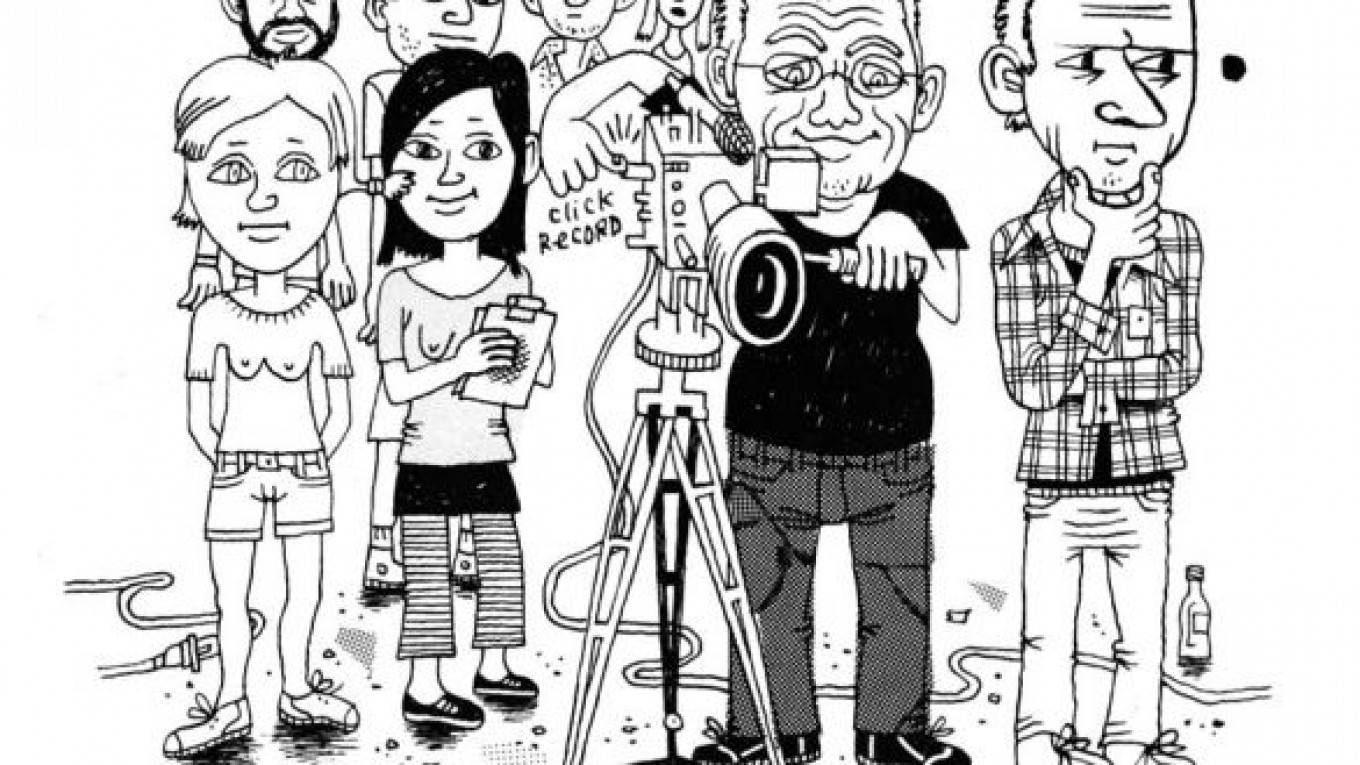St. Petersburg — This month, for the fifth year in a row, St. Petersburg is hosting the Boomfest international comic arts festival, with exhibitions and events all across the downtown.
Boomfest is the brainchild of St. Petersburg local Dmitry Yakovlev, who is also the festival’s current director. He became interested in comics after some Quebecer friends introduced him to “artist comics.”
“Before that, I thought comics were just Superman and Batman and nothing more,” Yakovlev said. He was inspired to create Boomfest six years ago after visiting a similar festival in Moscow called KomMissia, now in its 10th year.
“I saw it and decided that we had to have our own festival, but do it our way,” he said. “We work with a more artistic style of comics.”
The difference between traditional comics and artist comics can be compared to the difference between a Hollywood blockbuster and auteur cinema. Artist comics differ from traditional comic books and strips and manga (comics inspired by Japanese animation) in that their purpose is not merely to entertain, but also to be regarded as a works of art and literature, the way that a painting or a traditional novel would. In addition, they are generally the work of a singular artist/author, or a collaboration between an artist and a writer, rather than a team of writers, artists and inkers, like a traditional comic book would be.
Length can vary from a single strip to an entire series of novels. Genre, too, varies. Some well-known artist comics include Art Spiegelman’s Pulitzer Prize-winning “Maus: A Survivor’s Tale,” which is the story of his Polish-Jewish father’s Holocaust experiences, with the Jews depicted as mice and the Germans as cats. Another well-known example is “Persepolis,” Marjane Sartrapi’s autobiographical account of growing up in Iran before, during and after the Islamic revolution. “Persepolis” was adapted into an Academy Award-nominated animated motion picture in 2007.
One of the most high-profile comic authors taking part in this year’s Boomfest is French-Canadian artist Julie Doucet, who published the autobiographical “My New York Diary” in 1999 and then collaborated with director Michel Gondry on the animated short film with companion book “My New New York Diary” in 2008, which is a metafilm and book about the creation of the film and book themselves, detailing events such as Gondry and Doucet’s initial phone conversations about the project and Gondry’s dealings with Doucet’s housemate. Doucet’s work is being shown at St. Petersburg’s Manezh, Small Hall. The show includes work from her comics, as well as her more recent work, which has generally taken the form of collage and woodcuts.
Other comic artists being featured in Boomfest this year include Stefano Ricci, an Italian illustrator, comic book artist and designer; Nikolai Radlov (1889-1942), a Soviet cartoonist and art professor; Miguel Gallardo, a Spanish comic creator and illustrator whose 2008 book “Maria y Yo” (Maria and I) about the author’s travels with his autistic daughter, Maria, won the Catalonian National Award for Comics and has also been turned into an award-winning documentary film of the same name; and many others.
In addition to the gallery exhibitions, several lectures and workshops have been held as part of Boomfest, as well as a conference with representatives from comic collection libraries from all over Europe.
Boomfest is also showcasing the results of a competition sponsored by Moomin Characters — the official copyright holders of Tove Jansson’s ever-popular Moomin comics — featuring work submitted by comic artists of all ages, including children, and of many different nationalities and languages.
Boomfest runs till Oct. 16 in St. Petersburg. Check out the main show at the Manezh, Small Hall, 1 Isaakiyevskaya Ploshchad, St. Petersburg. +7 (812) 314-5959. For a map of all the events, see .
A Message from The Moscow Times:
Dear readers,
We are facing unprecedented challenges. Russia's Prosecutor General's Office has designated The Moscow Times as an "undesirable" organization, criminalizing our work and putting our staff at risk of prosecution. This follows our earlier unjust labeling as a "foreign agent."
These actions are direct attempts to silence independent journalism in Russia. The authorities claim our work "discredits the decisions of the Russian leadership." We see things differently: we strive to provide accurate, unbiased reporting on Russia.
We, the journalists of The Moscow Times, refuse to be silenced. But to continue our work, we need your help.
Your support, no matter how small, makes a world of difference. If you can, please support us monthly starting from just $2. It's quick to set up, and every contribution makes a significant impact.
By supporting The Moscow Times, you're defending open, independent journalism in the face of repression. Thank you for standing with us.
Remind me later.






